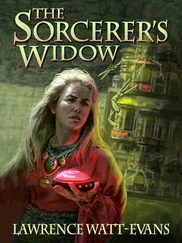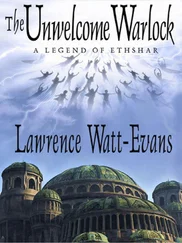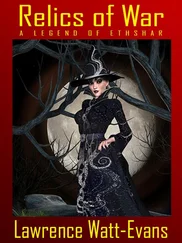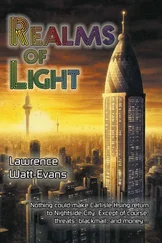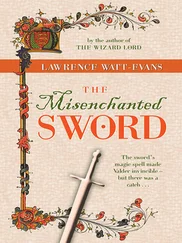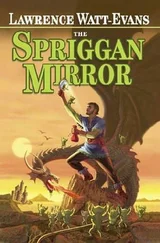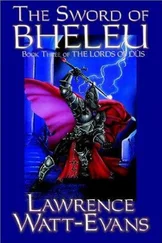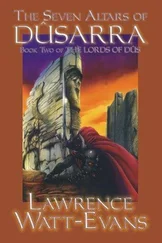Lawrence Watt-Evans - Taking Flight
Здесь есть возможность читать онлайн «Lawrence Watt-Evans - Taking Flight» весь текст электронной книги совершенно бесплатно (целиком полную версию без сокращений). В некоторых случаях можно слушать аудио, скачать через торрент в формате fb2 и присутствует краткое содержание. Год выпуска: 2015, ISBN: 2015, Издательство: Wildside Press LLC, Жанр: Фэнтези, на английском языке. Описание произведения, (предисловие) а так же отзывы посетителей доступны на портале библиотеки ЛибКат.
- Название:Taking Flight
- Автор:
- Издательство:Wildside Press LLC
- Жанр:
- Год:2015
- ISBN:9781479402588
- Рейтинг книги:3 / 5. Голосов: 1
-
Избранное:Добавить в избранное
- Отзывы:
-
Ваша оценка:
- 60
- 1
- 2
- 3
- 4
- 5
Taking Flight: краткое содержание, описание и аннотация
Предлагаем к чтению аннотацию, описание, краткое содержание или предисловие (зависит от того, что написал сам автор книги «Taking Flight»). Если вы не нашли необходимую информацию о книге — напишите в комментариях, мы постараемся отыскать её.
Taking Flight — читать онлайн бесплатно полную книгу (весь текст) целиком
Ниже представлен текст книги, разбитый по страницам. Система сохранения места последней прочитанной страницы, позволяет с удобством читать онлайн бесплатно книгу «Taking Flight», без необходимости каждый раз заново искать на чём Вы остановились. Поставьте закладку, и сможете в любой момент перейти на страницу, на которой закончили чтение.
Интервал:
Закладка:
“Did they take it?” Kelder asked, since she seemed to expect a reaction.
“No,” Irith said. “They were too scared of the king, because everybody knew he had a really nasty temper, and if the story got out he would probably have them all disemboweled. Instead they took Telar back to the king, and Telar offered King Caren the money-and the king thought about it, and saw that the money was more than he’d get in a year of collecting tolls from merchants, and that Telar was a lot easier to deal with than the merchants, so he took it. And other bandits heard about this, and it looked like a good deal.” Irith shrugged, fingers spread. “So there still aren’t any tolls in Angarossa, but there are plenty of bandits.”
Kelder thought this over for a moment, then said, “That’s ridiculous. Why do the merchants put up with it?”
“Well, some of them don’t want to,” Irith admitted. “They’ve been talking about building a new highway, south of Angarossa, through Shimillion and Omanon. It would be a lot longer, though, and so far most people settle for hiring guards, or bringing magicians along.”
“Couldn’t they offer to pay tolls, if King Caren would get rid of the bandits?”
Irith shrugged. “I don’t know,” she said.
They walked on silently as Kelder considered the notion of a king who could be corrupted so easily by mere money. Kings were supposed to protect their people, weren’t they?
But then, the merchants weren’t really King Caren’s people, were they? They were foreigners passing through, while the bandits lived in the country. Did that mean that other kings were actually betraying their people by stamping out banditry?
No, that was silly-but why was it silly?
He struggled with the whole question for some time, mulling it over as the afternoon wore on and the sun descended to the west, and he finally worked it out.
Banditry helped the bandits, in the short run, but it hurt the innkeepers and the local merchants by stealing money that the caravans might have spent in town. And in the long run, it might mean re-routing the highway, which would hurt everybody, Angarossan or otherwise.
Besides, how could the king be sure that the bandits would only rob or kill foreigners?
So King Caren ought to stop the bandits.
“There’s that smell again,” Irith said, interrupting his thought.
“What smell?” he asked, startled.
“That funny sour smell that the caravan has.”
Kelder sniffed.
“I still don’t smell anything,” he said.
“It’s there,” Irith insisted.
“Maybe the wind shifted,” Kelder suggested.
Irith abruptly had wings, and flapped them tentatively.
“No,” she said. “The wind’s still from the northwest.”
Her wings vanished again.
“You really don’t smell it?” she asked.
“No,” Kelder admitted, “I really don’t.”
“It’s very strong now.”
“I don’t smell it. Maybe it’s something magical? Something only girls can smell?”
Irith frowned, an expression that Kelder found comic and endearing; he resisted the temptation to grab her and forget all about mysterious odors, hostile caravans, deranged kings, and so forth.
“I don’t know,” she said. “I never heard of anything like that.”
Kelder could think of nothing more to say; he could smell nothing but dust and grass and the leavings of the caravan’s draft animals. He looked about, trying to think of another subject to take up and to distract himself from Irith’s charms.
Something caught his eye, far out on the horizon.
“What’s that?” he said, pointing.
Irith’s gaze followed his outstretched finger, but she didn’t need to answer; it was plain now what Kelder had spotted.
A line of horsemen was charging down over the low ridge to the north of the highway, sweeping down toward the caravan.
“Bandits!” Irith exclaimed, and her wings were back. Before Kelder could say anything to calm her she was aloft, flying up out of danger.
Kelder had no such convenient escape, but he saw no need for one. He was no more than a neutral observer, after all-neither the bandits nor the caravan had any reason to harm him. He stood his ground and watched.
The idea of watching a battle was both alluring and repulsive-it would certainly be something to tell everyone back in Shulara, but at the same time he didn’t want to see anyone hurt or killed. They were going to be hurt or killed whether he watched or not, however, so he stared intently.
The horsemen had swords drawn, their blades glittering in the sun. They were shouting, though Kelder could make out no words. The caravan could hardly help but see them now, and the guards and merchants were running around madly, the horses whinnying in dismay at the excitement, the oxen plodding stolidly on undisturbed, or stopping if their drivers remembered to rein them in, or if they came too close to the wagon in front.
It seemed to Kelder, from what he had heard of such affairs, that certain things should be happening. The caravan guards should be forming a defensive line, or a ring, or something, while the merchants and other noncombatants should be taking shelter-but that didn’t seem to be what was happening. Instead, people were rushing back and forth along the line of wagons, while others, including most of the guards, were gathering along the south side of the wagons, away from the approaching riders.
“Look!” Irith called from above, her word barely discernable above the hubbub of shouting, babbling voices, rattling equipage, and drumming hooves. She pointed.
Kelder looked.
A man in a black robe had climbed atop one of the big wagons, and was rising to his feet, standing on the wagon’s roof. He was shouting aloud, and even over the general din his voice seemed to cut like a hard wind.
The words, though, were like nothing Kelder had ever heard before. They were no language he recognized-and no language he wanted to recognize. They were harsh, alien sounds that had no right to emerge from a human throat.
The bandits were almost to the row of wagons now; their original neat line had broken as the faster horses pulled ahead and the slower lagged. The foremost attackers were reining in, rather than barreling straight on into the sides of the wagons, or charging past their objective entirely.
The battle was about to be joined when the first black thing popped out of the ground.
At first Kelder wasn’t sure what he had seen, but then others appeared, so fast that he couldn’t say where the second or third had emerged; there were none, there was one, and then there were hundreds, faster than he could react, a sea of them springing up from under the caravan. Like water from a fountain, they came from beneath the wagon where the man in black stood, still chanting.
They were shorter than people, perhaps three or four feet tall, but as broad across the shoulders as most men. Their limbs were crooked, but clearly powerful. Their bare skin and shaggy, unkempt hair were black or dark gray. They wore no armor, and for that matter no clothing, but charged into the fray naked-but not unarmed. Axes, swords, knives, sticks, weapons of every kind were clutched in their misshapen hands, the blades as naked as the creatures that wielded them.
And the creatures’ faces were truly hideous. Great staring white eyes, noses like blades or blobs or broken rock, mouths that gaped in enormous yawning grins, full of jagged yellow teeth-Kelder was very glad he was no closer, and could not make out all the details. He had never seen anything so ghastly.
At least, not until the fighting began.
The creatures made no distinction between man and mount; it seemed they would gleefully hack at anything that moved that came within reach and was not a part of the caravan. Horses screamed in agony as the axes and knives chopped at their legs and flanks; they fell, and their riders screams joined their own.
Читать дальшеИнтервал:
Закладка:
Похожие книги на «Taking Flight»
Представляем Вашему вниманию похожие книги на «Taking Flight» списком для выбора. Мы отобрали схожую по названию и смыслу литературу в надежде предоставить читателям больше вариантов отыскать новые, интересные, ещё непрочитанные произведения.
Обсуждение, отзывы о книге «Taking Flight» и просто собственные мнения читателей. Оставьте ваши комментарии, напишите, что Вы думаете о произведении, его смысле или главных героях. Укажите что конкретно понравилось, а что нет, и почему Вы так считаете.

